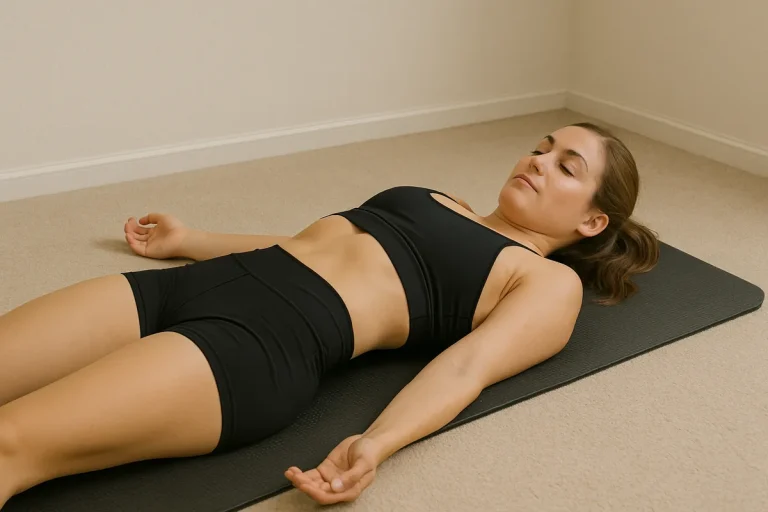It’s no longer just about physical strength or aesthetics fitness is increasingly recognised as a powerful tool for mental health. Whether it’s a brisk walk, a strength session, or a dance class, movement has a measurable impact on how we feel, think, and cope. And science is catching up with what many have experienced firsthand: regular physical activity can help reduce symptoms of depression, anxiety, and stress, while boosting mood, focus, and overall wellbeing.
This article explores what the research says about the link between fitness and mental health and how to make movement part of your emotional wellness toolkit.
How Exercise Affects the Brain
When you move your body, your brain responds. Physical activity triggers the release of neurotransmitters like serotonin, dopamine, and endorphins chemicals that help regulate mood, reduce pain, and promote feelings of pleasure and calm. It also increases blood flow to the brain, supporting cognitive function and emotional regulation.
Key effects of exercise on mental health:
- Boosts mood and reduces symptoms of depression
- Lowers stress hormones like cortisol
- Improves sleep quality and energy levels
- Enhances memory, focus, and decision-making
- Builds resilience and emotional regulation
According to a study published by Harvard Health, replacing just 15 minutes of sitting with 15 minutes of running or an hour of walking can significantly reduce the risk of major depression.
By signing up, you agree to receive emails from RealFit Wellness. You can unsubscribe anytime. See our Privacy Policy.
Your Weekly Wellness Boost
Which Types of Movement Help Most
Not all exercise impacts mental health in the same way. Research shows that different types of physical activity offer different benefits, depending on intensity, duration, and personal preference.
Here’s what the evidence suggests:
- Aerobic exercise (e.g., walking, cycling, swimming) is strongly linked to reduced symptoms of depression and anxiety
- Strength training improves self-esteem and reduces fatigue
- Yoga and stretching support relaxation and reduce stress
- Group fitness or team sports enhance social connection and reduce loneliness
- Outdoor movement (e.g., hiking, running in nature) adds the benefit of sunlight and fresh air, which support mood and circadian rhythm
A meta-analysis published in the British Journal of Sports Medicine found that leisure-time physical activity had the strongest association with improved mental health outcomes across a sample of over 3 million people.
How Often You Need to Move
Consistency matters more than intensity. You don’t need to train like an athlete to experience mental health benefits just regular, moderate movement can make a difference.
General guidelines:
- Aim for at least 150 minutes of moderate activity per week
- Break it into manageable chunks (e.g., 30 minutes, five times a week)
- Include a mix of cardio, strength, and flexibility
- Listen to your body—rest and recovery are part of the process
Even short bouts of movement like a 10-minute walk or a few stretches between meetings can help reset your mood and reduce mental fatigue.
Why Movement Supports Long-Term Mental Health
Beyond the immediate mood boost, regular physical activity helps build long-term emotional resilience. It teaches the brain and body how to manage stress, regulate emotions, and recover from setbacks. It also supports better sleep, which is closely tied to mental health.
Long-term benefits include:
- Reduced risk of chronic mental health conditions
- Improved coping skills and emotional regulation
- Greater sense of control and self-efficacy
- Enhanced social connection and support
- Lower levels of inflammation and oxidative stress
A systematic review published in the International Journal of Behavioral Nutrition and Physical Activity identified strong evidence for mediators like self-esteem, resilience, and social support in the relationship between physical activity and mental health.

Making Fitness Part of Your Mental Health Routine
To get the most out of movement, treat it like any other wellness habit something you build into your day, not something you wait to feel motivated for.
Tips to stay consistent:
- Choose activities you enjoy fun matters
- Schedule workouts like appointments
- Pair movement with music, podcasts, or nature
- Track progress to stay motivated
- Be flexible—some days will look different than others
Movement doesn’t have to be intense or complicated. It just has to be consistent. Over time, it becomes a reliable tool for managing stress, boosting mood, and supporting overall wellbeing.







